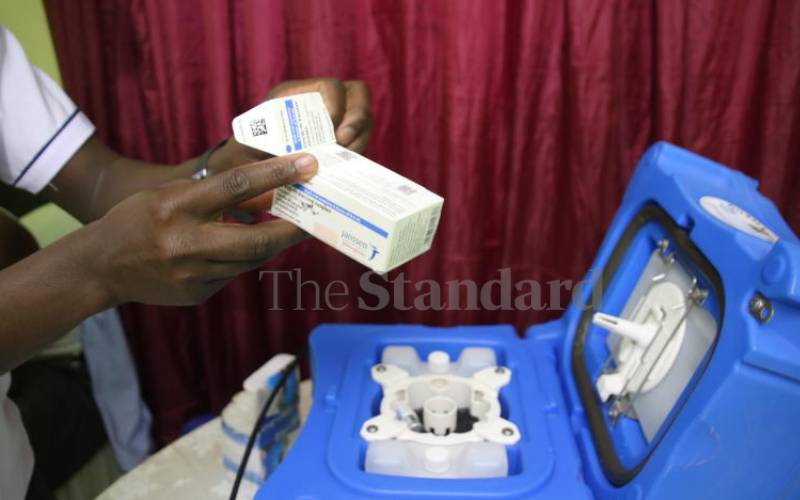×
The Standard e-Paper
Kenya’s Boldest Voice

Vaccine sample at a vaccination facility in Shelter Afrique, Nairobi. September 2021. [David Gichuru, Standard]
Kenya is among countries in the continent whose response to outbreak of diseases will speed up after the Africa Centres for Disease Control and Prevention (Africa CDC) was recently accorded autonomous status.